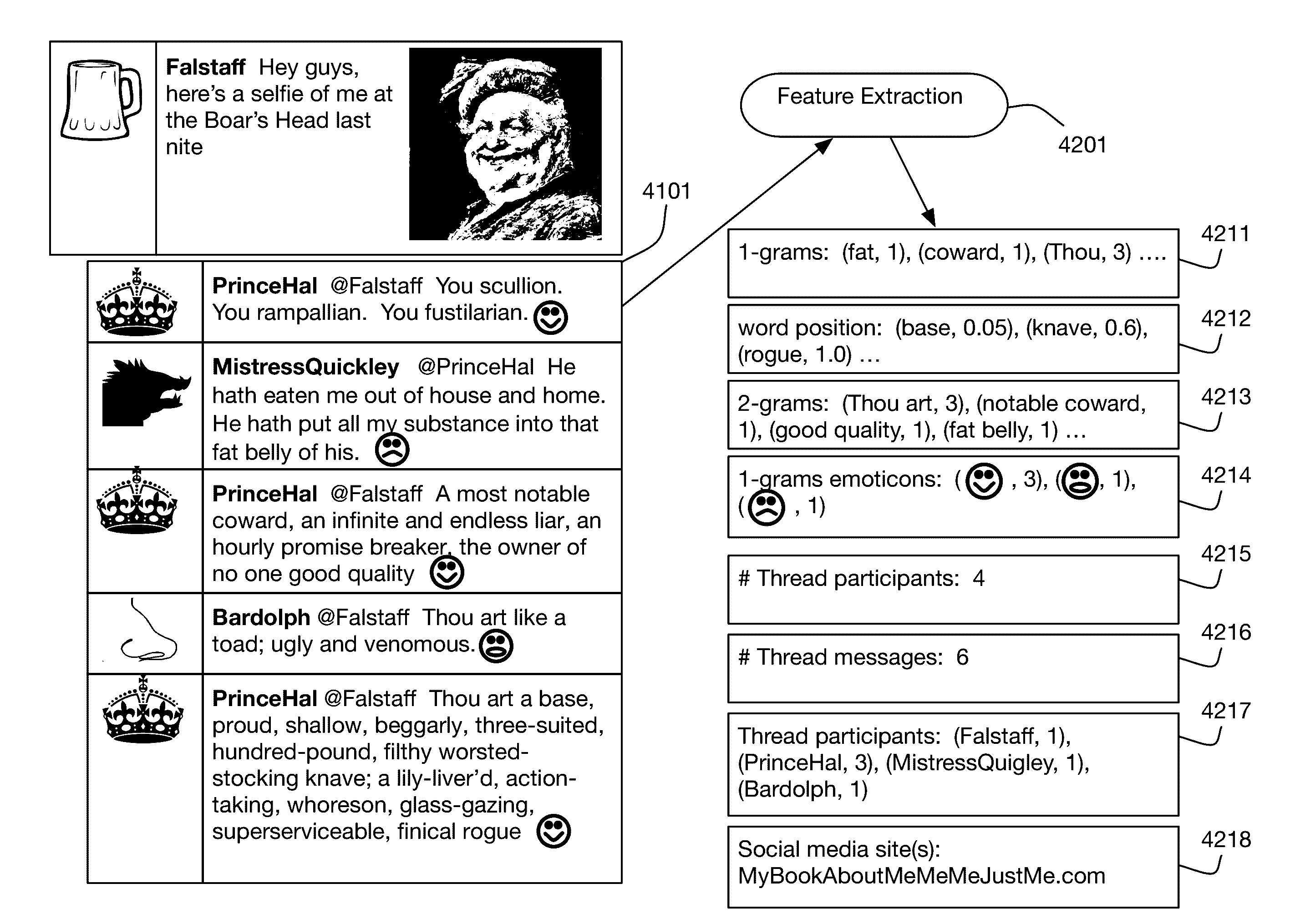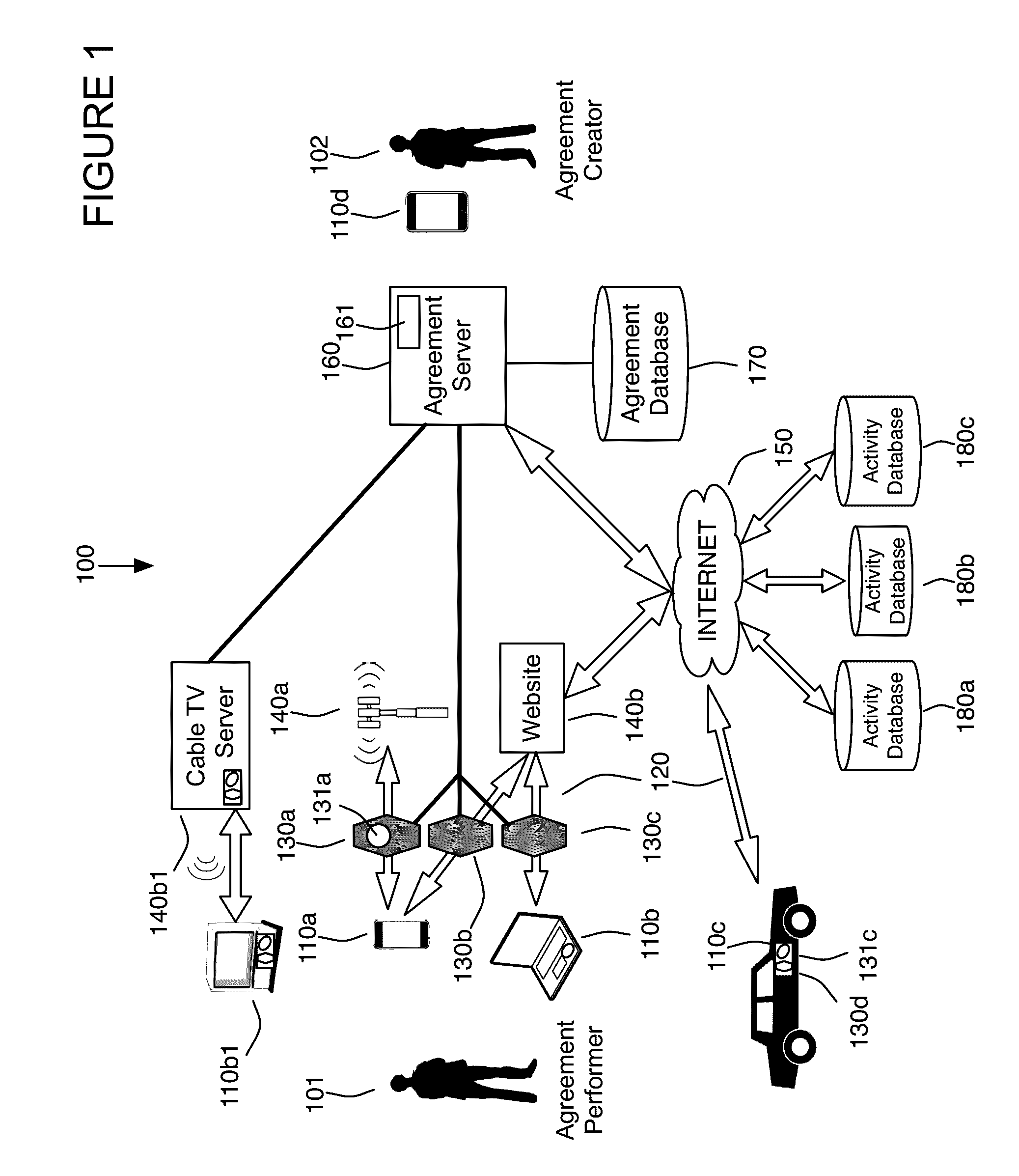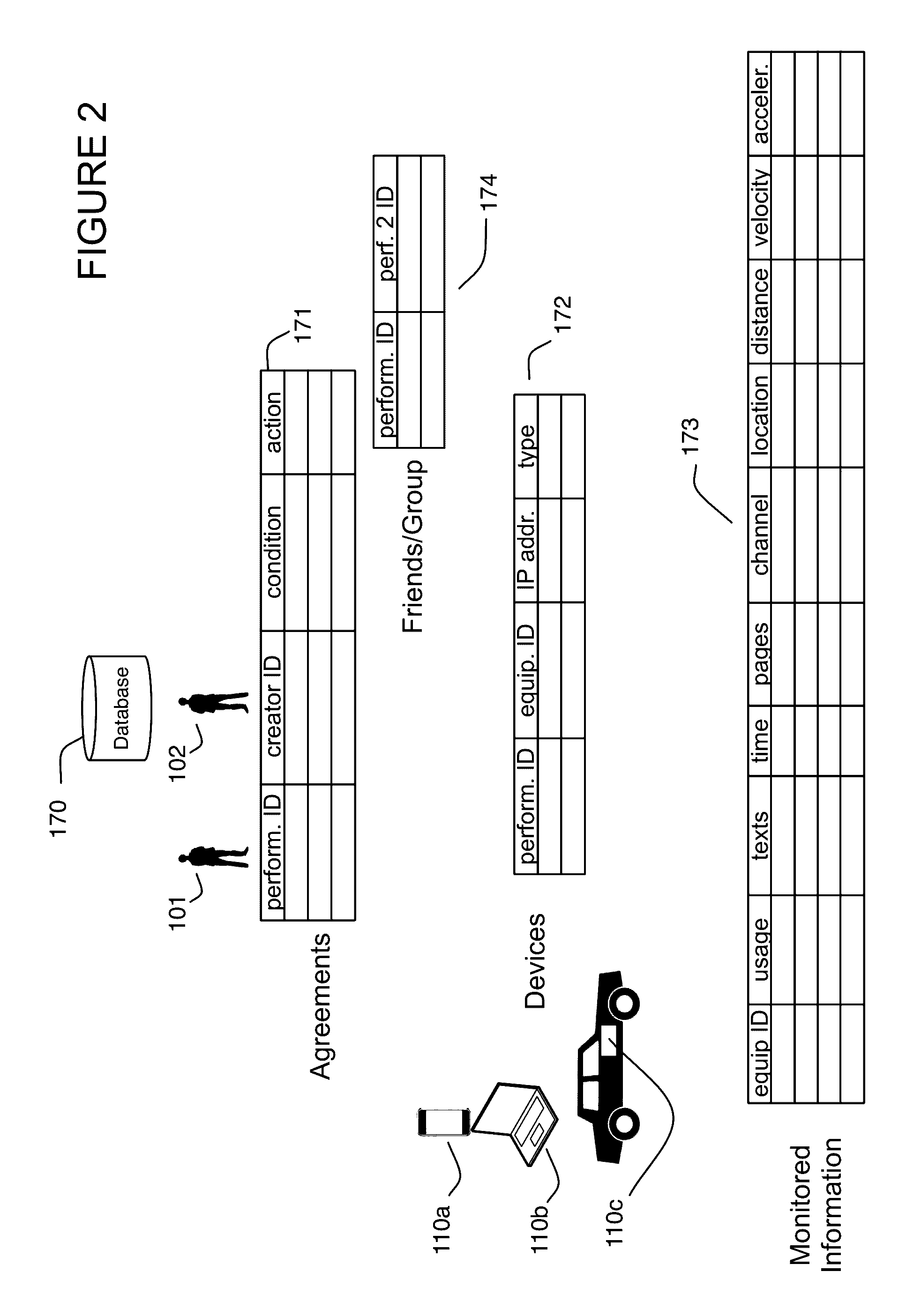Known solutions may interrupt a child from playing a game or watching a
programming in order to ask a question that a parent must create, which places a burden on the parent to create test questions and which completely cuts off access to the function that the electronic device was performing until the question is answered, e.g., complete blocking for a period of time as opposed to throttling to partially decrease functionality which enables a child to continue to watch a program albeit at a reduced resolution, brightness, black and white instead of color, reduced
sound quality or any combination thereof.
For example, QoS products attempt to preserve a particular data flow for a given user or application and are not capable of altering bandwidth or type of information accessed or altering the functionality of the device itself based on homework status, test grades, compliance with a corporate training requirements, compliance with
electronic communication rules, or
health related events such as heat, cold,
pollen, smog or other events, or for example whether or not a child can access math related websites if the child is scheduled to be in math class at the time.
This incredible paradigm shift has resulted in individuals of all ages spending an inordinate amount of time using electronic devices, and in turn becoming distracted by them, hindering productivity and adversely impacting time and
organizational management systems and in general making people less engaging in person, less physically active and less healthy.
Whether through phone calls, texting, use of apps, social networks, video games, and general websites, children in their most formative years, for example 5-12 years old and even younger and older children as well, are particularly at risk for
distraction.
This level of
distraction leads to sub-par academic performance, incompletion or delayed completion of household chores, or other assigned activities, such as
physical exercise, taking of medications, etc.
There are no known systems that
throttle electronic devices or throttle information to / from / on electronic devices associated with children based on their compliance with agreements or other events and / or based on schedule, location, time or any combination thereof.
Until that question is answered there is no way in which to access
the Internet, even in an emergency.
There are no known systems that throttle electronic devices or throttle information to / from / on electronic devices associated with employees based on their compliance with agreements or other events.
This is sometimes difficult to do or may cause safety issues by disabling one's ability to dial emergency telephone numbers for example.
In effect, these filters limit “what” a user may view or do.
In addition, some types of filters have time ranges for use that limit the times at which a user may view or do something.
Thus, known filters cannot control email, instant messages or chat sessions in any sophisticated manner since these types of open proxies may be utilized to bypass any installed web filtering
software.
Other solutions do not actually control the devices, but rather involve monitoring
software that is highly invasive and intercepts or otherwise supervises electronic devices and copies keystrokes, screen images, text messages and any other input or output to the electronic device to a
third party for surveillance purposes.
There are negative limitations to this solution, privacy being a major problem area.
There are no known systems that control electronic devices, for example dim screens, i.e., adjust brightness or
color space of a display, limit
sound power output, activate sounds, introduce delays or throttle, decrease or increase the amount of or type of information to / from / on the electronic device based on compliance with an agreement or event and / or based on schedule, location, time or any combination thereof or any combination thereof.
There are no known systems that increase bandwidth or sources of information for an agreement performer if the agreement performer has walked, biked, run or swim or otherwise moved by their own effort over a predefined distance for health compliance.
There are no known systems that throttle or increase bandwidth in case of high
pollen count or smog alert events to encourage a child to stay inside and surf the web or play games, or decrease bandwidth or type of information if the weather is good outside to promote exercise such as physical
game play instead of
video game play.
There are no known systems that throttle a device based on activities associated with another user or a group of other users, i.e., friends of a child or work groups to encourage better circles of friends or improved group performance.
In addition, there are no known systems that data mine for rewards that may be utilized by a parent for a reward that is similar to a reward for a condition that another parent or person has utilized.
There are no known systems that enable manufacturers to data mine for types of rewards or incentives and target a group of parents or persons that may buy certain types of products based on agreements and conditions.
There are no known systems that enable parents or other persons to remain up to date on items popular amongst children that are based on agreements that other parents have entered and which have resulted in rewards for meeting conditions of the agreements.
There are no known systems that provide popups or text messages during
game play showing tasks to be completed according to agreements.
There are no known systems that determine if a child is communicating with a known sex offender, for example based on sex offender maps and IP tracing, for example alert to a parent and potentially throttle other forms of electronic device utilization to further protect a child.
There are no known systems that alert a parent when a child's friends have gotten in trouble or are not meeting their agreements, so that a parent may limit a child's interactions with particular people or groups.
There are no known solutions that limit a person's agreement with himself or herself to throttle usage based on
addictive behavior such as online gambling or obsessive pornography viewing.
There are no known systems that provide tips or recommendations for example to improve a child's performance based on parent and / or child behavior with respect to agreements.
There are no known systems that monitor a person's electronic communications, such as emails, texts, or postings on
social media sites, and that throttle information or otherwise provide feedback based on these communications.
Certain behaviors or patterns in electronic communications may be considered undesirable or off limits, for example by parents.
There are no known systems that create rules or guidelines for the electronic communications of an agreement performer, and that monitor those communications and throttle information or performance based on compliance with the agreement.
There are no known systems that throttle information based on workplace use policies, which may for example permit or
restrict access to selected applications, features, services, or information sources when a device is used in a workplace environment, for example within a certain location and / or schedule.
 Login to View More
Login to View More  Login to View More
Login to View More 


